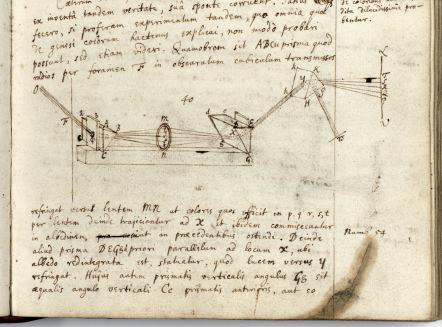|
ERAT
(ER-awt)
Quod
Erat Demonstrandum: ‘that which was to be demonstrated’
Common
clues: Part of QED; Latin 1 verb conjugation; QED middle; Quod
____ demonstrandum
Crossword
puzzle frequency:
6 times a year
Frequency
in English language:
(QED) 49166/86800
Video:
Proof
of the Best Card Trick in the World
Q.E.D.
is an abbreviation of the Latin phrase "quod erat
demonstrandum" (literally, "which was to be
demonstrated"). In simple terms, its use is to indicate that
something has been definitively proven.
Q.E.D.
may be written at the end of mathematical proofs to show that the
result required for the proof to be complete has been obtained.
It is not seen as frequently now as it once was, since formal
geometry is less commonly taught as a separate subject.
The
term is also used both formally and informally in a wide variety
of disciplines, as well as in everyday conversation in many parts
of the English-speaking world.

A
page from Isaac Newton’s notebook
Q.E.D.
is a translation into Latin of the original Greek (hoper edei
deixai) which was used by many early mathematicians including
Euclid and Archimedes. Benedict De Spinoza also makes extensive
use of the abbreviation Q.E.D. in his various works.
This
article is licensed under the GNU
Free Documentation License.
It uses material from the Wikipedia
article "Q.E.D."
|